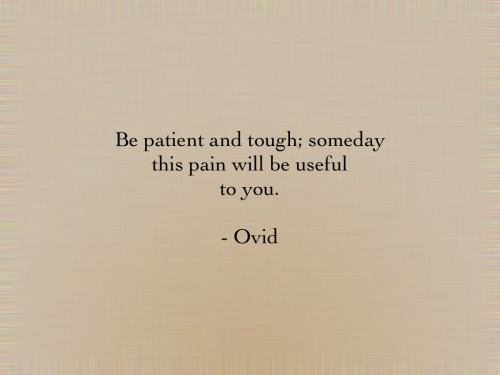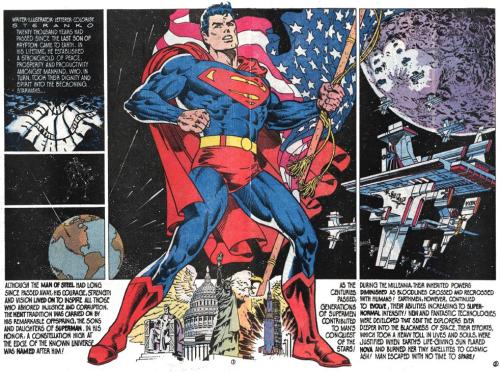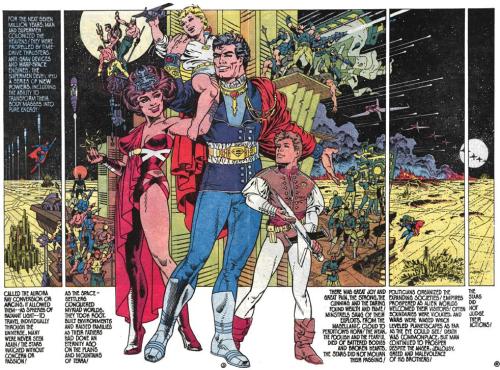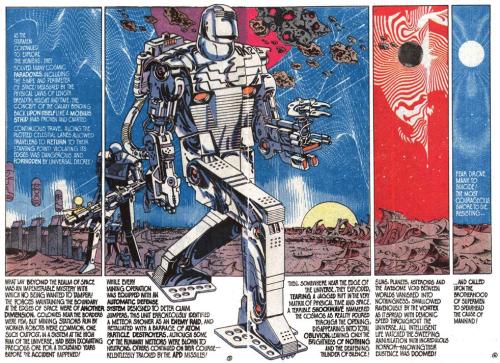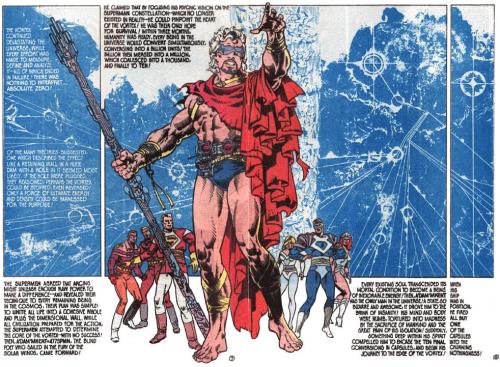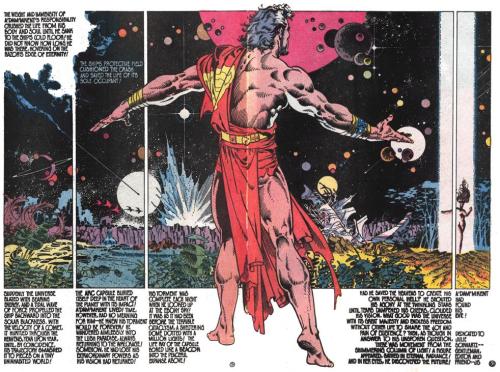Continuing my seven (possibly terrifying) weeks of M.Christian, here's my newest installment...
...my reasoning behind this is that I haven't really talked a lot about myself for a while so I thought it would be a fun little experiment to post - once a week, for seven weeks - a series of essays about little ol' me: where I came from, my professional journey, being an editor, being a publisher ... and even my hopes and dreams for the future.
Unlike some writers I actually became an editor very quickly
after selling my first story. I
wish I could say it was because of my staggering personal magnetism, overwhelming
charisma, or through the brilliance of my talent as a writer but, to be honest,
it literally was just matter of right time (1995, the beginning of what some
call the "literary erotica" craze) and the right place (I knew
someone who had already done books with the publisher).
My first anthology was called Eros Ex Machina: Eroticizing the Mechanical (later reprinted by the
late, lamented Erotic Book Club as Sex
Machines) and, if you couldn't tell from the title, is was about people
having ... well, sex with all kinds of devices, gizmos, and do-hickeys.
As with a lot of things, once I'd done one another quickly
followed – with a vengeance on my part: as of this writing I'd edited something
like 25 anthologies, ranging from pure erotica like the three book deal I got
with Sage Vivant (Amazons, Confessions, and Garden Of Perverse) to the non-smutty, and quite literary, pair of
Mammoth Books I did with my pal, Maxim Jakubowski (Mammoth Books of Tales Of The Road and The Mammoth Book of Future Cops).
Now I really wish I could say that there is some kind of
trick, or extra-normal talent to editing an anthology. Oh, sure, there are some things that
take a bit of skill and training – which I’ll touch on in a sec – but, by and
large, an editor's job boils down to reading, and then selecting, stories.
Of course just this simple part of the job can be the most
problematic: what I like, after all, is often light years away from what you
might like. My usual rule of thumb
when selecting stories is to look for an author who, first of all, is clearly
having fun with the habitually crazy-ass theme I've given them, secondly, knows
how to write, and – last but not least – tells a good story.
It shocks people when tell them that, usually, when I edit
an erotic-themed anthology, I pay little or no attention to the sex
itself. In fact I typically skim
over that part – focusing instead on what the writer is trying to say and how
they are saying it.
As I like to tell people in my Sex Sells: Writing and Selling Erotica class – and have said in my
"Confessions Of A Literary Streetwalker" column for the incredible,
and invaluable, Erotica Readers and Writers site (now – commercial starts –
assembled in my new book How To Write And
Sell Erotica – commercial ends): a good sex story has to be a good story,
beyond anything else. In fact when
I make notes on submissions the worst comment I can make on a story is
"just porn:" meaning that there is nothing in the story but page
after page of bump-grindy ... and nothing else.
Beyond that I usually select stories that give the book some
range and variety – within the limits set by the project, of course. I'd like to say that I don’t pick
stories because the author may or may not be famous but (sigh) I have to be
honest that unless it is a very poor
story a 'name' can actually help sell a book. But that does not mean that I only take stories with this in mind – in fact most of the stories I
feel are the best are often written by writers who, like I said, are having a
fun time with the theme and know that an erotic story is not just about sex.
In addition to being an editor I am, of course, a writer so I
really try to be the editor I'd like to be dealing with when I'm wearing that
other hat – and because of that I am -- or try really hard to be -- a kind,
polite, and conscientious editor: I answer every email, no matter how silly or
even insulting, and I always send out rejection letters even though it is a
very painful process ... because I am too well aware how much those things can
hurt. But I also take a certain
amount of pride in sending out nice
rejection letters – if there are such things.
As a writer as well as an editor I can tell you right off
the bat that treating an editor as an enemy, approaching them like they are out
to steal your work or whatever, is not
the way to go. If someone I reject
reacts rudely ... I wish I could say that I turn the other cheek but, honestly,
I doubt I will take anything by that author in the future. Life is too short to deal with prima-donnas
and, besides, there are usually stories just a good waiting in the wings.
It's a maybe-silly point of pride with me that many people
I've rejected have actually become friends – and, as such, while it won't
change a bad story into an accepted one – it does mean I might actually try and
help them with their work, or at least encourage them to keep writing.
What can be frustrating about being an anthology editor –
please allow me to vent here – is that very, very few reviewers know how to
judge them. The fact is that an
editor often has to take what they get – or they've tried to create a spread of
approach, style, content, etc. to make the book as well-rounded as possible – a
fact lost on many reviewers, who forget this fact and pan a book because a few
stories didn't work for them or because they feel the quality of the stories
wasn't up-to-par.
As a writer as well as an editor has also made me very
sensitive to bad anthology editors, and so I try very hard act like they
do. As I already mentioned, I
always reject – even though it may be a painful thing to do – and I when I say
a story has been accepted then it's been accepted: I don't play games with
short-lists or change my mind once I've told the author.
I also feel that an author's work, and voice, is their own,
and so I will rarely ask for any kind of rewrite – especially around the
plot. As I writer I honestly can't
stand editors who think that, because they are The Editor, that gives them the right to dink with an author's work
– with or without their permission.
For me, being an editor just means I'm an administrator of sorts, that
my name on the book basically means I created the crazy theme of the book and
picked the stories. That's why I
try and downplay myself when I talk about my anthologies and instead focus on
the authors who contributed their wonderful stories: it's far more their book
than it is mine.
Also being on both sides of the fence has made me very vocal
about editors who I feel have let their egos get in the way of the project: I
do not play favorites when I talk about my books – choosing to mention one
author over another – and I always, to repeat myself a bit, do a book with an
eye on being the editor I'd like to deal with as a writer.
Now even though I said that approaching an editor as if they
are some kind if enemy, or reacting poorly in regards to acceptance/rejection,
contract terms and all that stuff that does not mean as a writer should not have
some say in how things are done – but it's far better to do what I do, as a
writer, when I come across an editor who is not being either professional or
even just kind: I simply don't send them any more stories for any of their
projects – and I tell my other writer friends about my experiences.
In the end, being an editor has been a unique and (to use a
cliché) eye-opening experience and, I sincerely hope, has made me respect
writers even more. It means a lot
to me that writers say that they like submitting to my books – accepted or not
– and that I have a certain amount of respect among writers for being
understanding and supportive.
For me, that is a successful anthology: not sales, or reviews,
but that the writers in the book had a good time dealing with me but even-more
had a fun time exploring the crazy idea I set before them and had a blast writing
their stories.
Like I said: my name might be on the cover but it is –
always – the authors who make an anthology ... and they are the ones deserving
of not just recognition but also respect.


